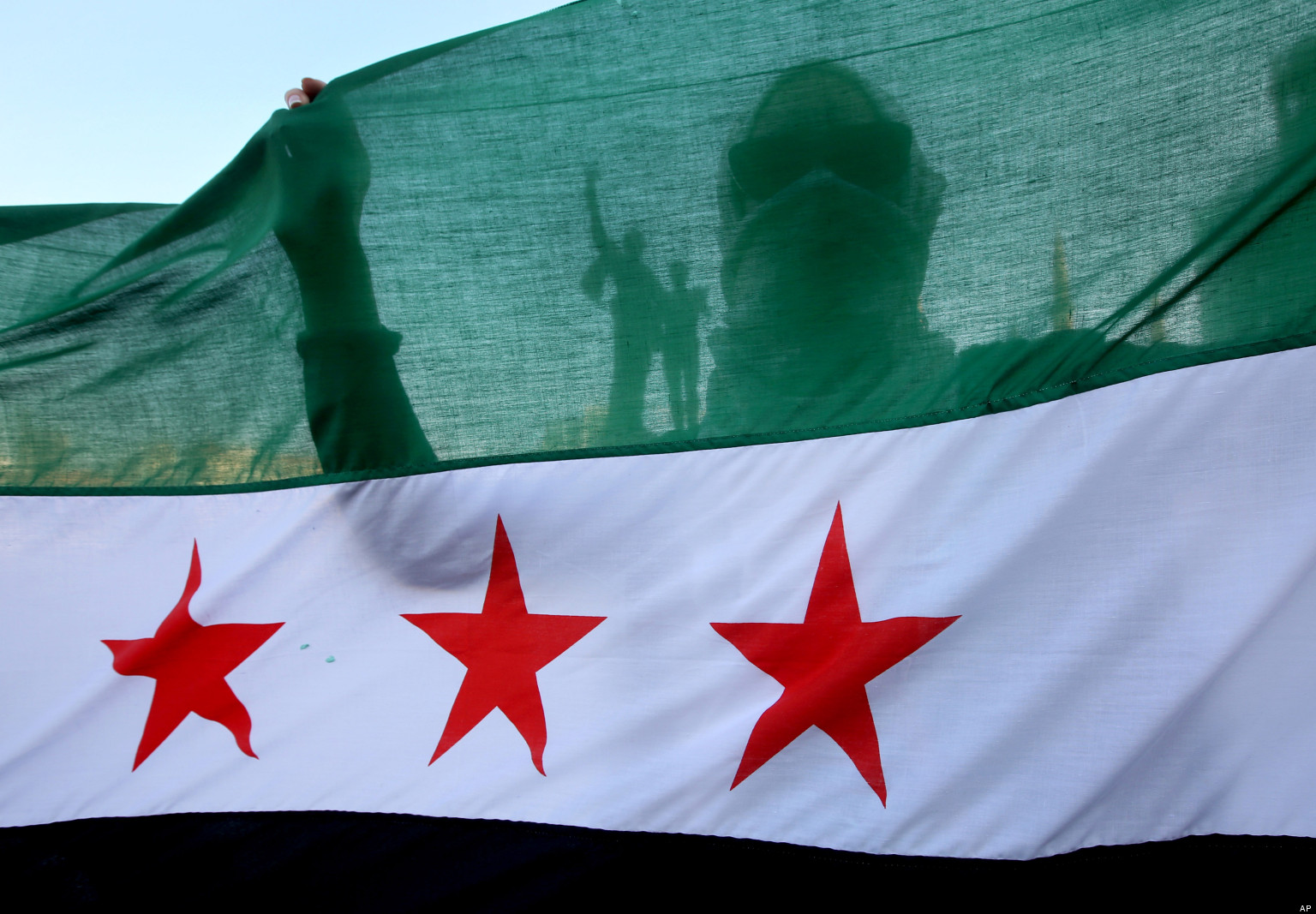Chemical weapons in Syria provide an opportunity for making peace
Aiming to “transform conflict” would inject new energy into the diplomatic process around Syria, by finding new common interests between adversaries.
Books |
Background |
GCCT |
By Robin Edward Poulton
Let it be clear that I am not in favor of chemical weapons, and I am shocked by the death of 1,000 people in a suburb of Damascus – whether the sarin gas was used by Assad’s troops or by Al-Qaeda, it is appalling. But I am even more appalled by the deaths of 100,000 Syrians during the civil war of the past two years. How can killing more Syrians by using Cruise Missiles possibly help the situation?
I do not believe that sending Cruise Missiles and “punishing Al-Assad” makes any sense at all. Let us step back a bit, and take a cold look at reality, before the heat of the emotion clouds our judgement and leads us to contribute additional violence.
This extreme case of chemical weapons may allow us to find ways to “transform the conflict” into something else. On the one side we have Shia Muslims, struggling for survival – for that is what life looks like for the Alawites in Syria and also for Iranians squeezed between antagonistic Turks, Arabs, Pakistanis and Israelis (and remember, the last two have nuclear weapons). Iranians, as Persians, have felt under threat from Arabs and Turco-Mongols for a thousand years. If we can guarantee their survival, they will be very interested in seeking a solution to the war.
The sarin gas killings may open doors, because the threat of retaliation gives new leverage to diplomatic discussions. In addition, the Iranians have just elected a new president which offers a new chance for negotiation. Last time a moderate was elected president of Iran, the Bush administration rejected the chance to talk – and Jack Straw, who was then Britain’s foreign minister, has said the Americans wasted a great opportunity. Now the US has better leadership. We should not neglect the chance to find peace.
President Obama inherited a policy machine dominated by the military. Time and again, he has only been presented with military options like : “Ground attack, air attack or missile attack?” But suppose we remove the word “attack” from the agenda, and replace it with “deal”. What sort of a deal could be made with the Syrians and Iranians, now that the chemical weapons red line has been crossed?
Two red lines have been crossed
We need to compare red lines. Syria has been the victim of external invasion. Foreign Sunni extremists have crossed a red line, as they stream across the eastern borders from Iraq and the northern border with Turkey. If Syria pulls back from the chemical red line and accepts some form of sanction, then the Wahabists and Jihadists and Iraqi Sunnis should pull back across the frontiers and accept some form of sanction. It is unclear why NATO forces are supporting extremist Sunni Al-Qaeda look-alikes in Syria, while fighting them in Afghanistan, Somalia, Yemen and recently in Mali.
“Conflict transformation” is more creative than “conflict resolution”. It is impossible to “resolve” conflicts in an ethnic and religious patchwork like the Middle East, where every tribe has a claim to the same land and water, based on rights dating from different centuries (sometimes even from different millennia). In Palestine, the best we have been able to do is to “manage conflict” – not very successfully.
Aiming to “transform conflict” would inject new energy into the diplomatic process around Syria, by finding new common interests between adversaries. Minorities are under threat – Christians, Assyrians, Kurds, Bedouins, Alawites. A group like the Alawites, who face genocide, may be interested in negotiating international guarantees of protection in exchange for surrendering chemical weapons. The Iranians might be glad to abandon the expensive search for an atom bomb, in exchange for international treaties protecting them against Al-Qaeda and other Sunni aggression. Turkey and Saudi Arabia appear to be competing for control – or leadership – of an aggressive Sunni hegemony, using Al-Qaeda allies to serve their rivalry. This threatens Iran and Syria, but also Israel and Russia: perhaps in exchange for a deal with Iran, the Sunnis might be persuaded to pull back their troops.
None of these options sounds easy; but every one of them offers a better way forward that using cruise missiles to kill still more unhappy Syrians. The cruise missiles will add to the war, but they certainly cannot bring peace.
Robin Edward Poulton is president of the Virginia Institute for Peace and Islamic Studies V-Peace and co-chair of the 2013 VCU Conference on Women War and Peace.




















Chemical weapons in Syria provide an opportunity for making peace | TransConflict http://t.co/f7QSmGSt8s
Chemical weapons in Syria provide an opportunity for making peace | TransConflict http://t.co/5b77ax7PB6
RT @BluishGreenEyes: Chemical weapons in Syria provide an opportunity for making peace | TransConflict http://t.co/5b77ax7PB6
RT @BluishGreenEyes: Chemical weapons in Syria provide an opportunity for making peace | TransConflict http://t.co/5b77ax7PB6
RT @BluishGreenEyes: Chemical weapons in Syria provide an opportunity for making peace | TransConflict http://t.co/5b77ax7PB6
RT @gcct_tc: Chemical weapons in #Syria provide an opportunity for making peace: Aiming to “transform #conflict” would inject – http://t.co…
RT @gcct_tc: Chemical weapons in #Syria provide an opportunity for making peace: Aiming to “transform #conflict” – http://t.co/Y2Kxyn5ACg“
Whatever the term is used either Conflict Transformation or Conflict Resolution, any type and in any place needs natural healing not medication for lasting peace.